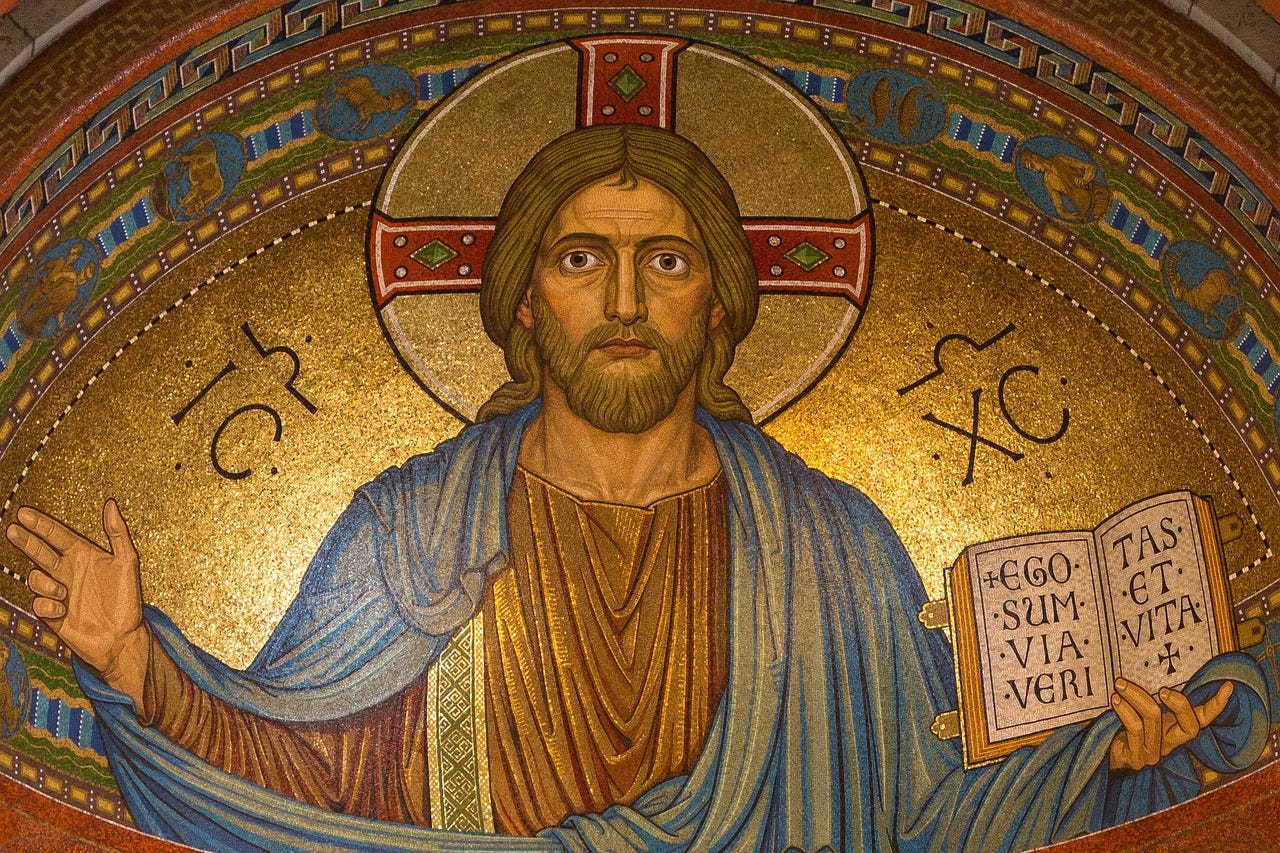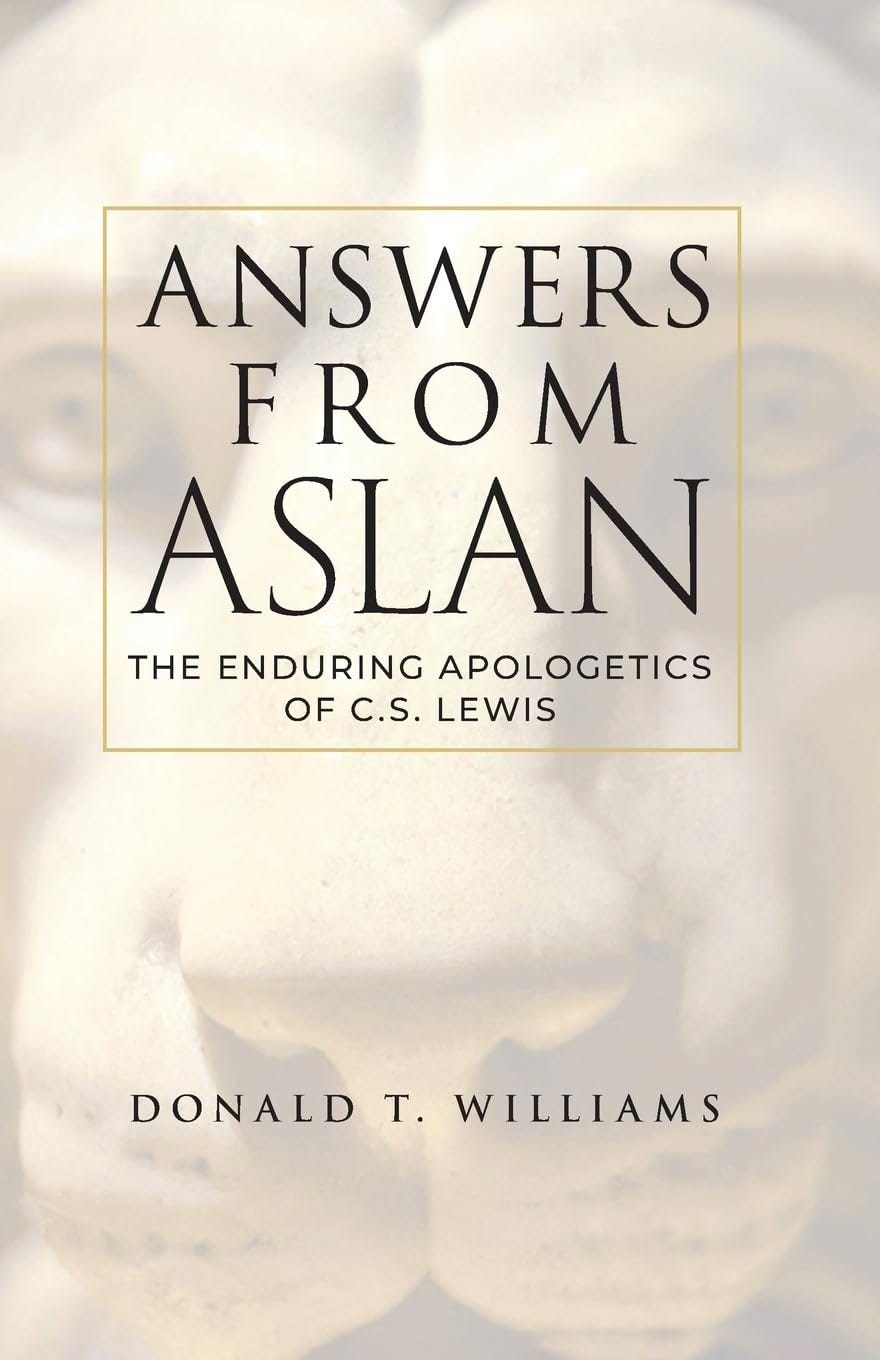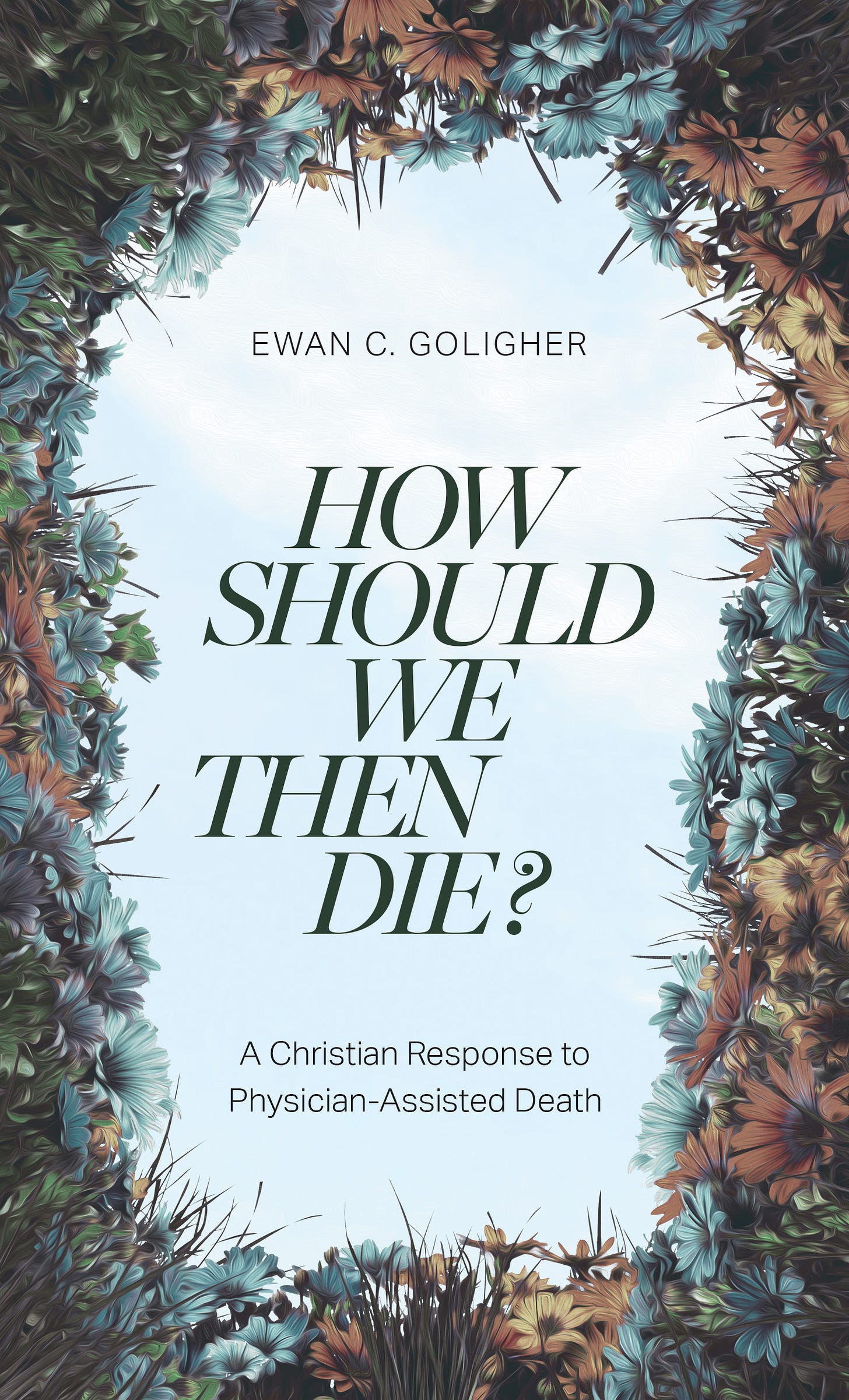Personal and Propositional: On the Christocentricity of Christian Faith
By Donald T. Williams
“What is truth?” asked cynical Pilate, not realizing that he was standing right in front of the answer. It is precisely because his Prisoner was personally the Way, the Truth, and the Life that certain propositions about that Person are also essential and true. It is because Christian truth is personal that it can be, and is, also propositional. It is because that Person is central to all of reality that truth has a center, a shape, and an arc to which those propositions conform. None of those propositions is rightly seen apart from the context created by its relationship to all the others and to the Center, which is Christ.
We thus come to understand that Christian truth is more than just a random series of soundbites. Christian truth is more than just a disjointed parade of prooftexts. Christian truth is more than just a maudlin set of sentiments. Christian truth is more than just a clever procession of paradoxes.
Christian truth is both personal and propositional: personal because it is incarnate in the Son, propositional because that Son is the Word spoken by the Father before all worlds. Sound Christian theology then is also both personal and propositional: It is truth revealed by a God who cannot lie. It is revealed through His Son who is the Word which cannot lie. And it is applied by a personal Spirit, who is the Spirit of Truth, to human persons to center them on the Person of Christ. That is why its propositional parts, when rightly seen, exert a gravitational attraction on each other (and on the persons who believe them) that pulls them together, surging inexorably toward coherence.
Christ the Son is the central Sun around which all the propositional planets whirl in mathematical precision. Christ the Son is the central Sun around which all the personal planets, following those propositional truths, should whirl in like precision. Because of the Fall, they don’t. Their orbits are eccentric, and they might even slam into each other. Even the redeemed ones don’t, quite. But the gravity of the Son is pulling them back into harmony. They respond to it with faith, with love and with joy.
So elegant is the orbital perfection of these revealed truths (and of the persons who follow them, when no carnal lust or spiritual pride distorts their paths), that they truly constitute a solar system, orienting every gazing eye toward the glorious Son in the center.
Those who fail to see the systematic nature of these truths, created by the gravitational pull of the Son in the center, teach a distorted caricature of Christian doctrine. (Those who teach a distorted caricature of Christian doctrine will tend to live, and cause others to live, a distorted caricature of the Christian life.)
Yet so beautiful and compelling is this system that some of those who are granted to see it fall in love with it, losing sight of what it refers to: the Son it serves, the Savior it glorifies, the Lord to whom it points, and the People who need to be pointed.
These also teach a distorted caricature of Christian doctrine.
Which error is worse? Who knows? Eschew them both!
How then do we rightly pursue the discipline of Christian theology, which is the pursuit of Truth so understood? Some of our fathers in the faith understood. “Learn to see Christ in everything,” advised John Donne, “and then thou needst not take thine eye off of anything.” “You never see the world aright,” said Thomas Traherne, “until you see how a [grain of] sand exhibits the glory and majesty of God.”
Let all your thoughts then ceaselessly orbit around Christ. Let all your meditations ceaselessly seek the relationship of everything to Christ and the relevance of Christ to everything. Let all your affections be focused on the One whom those thoughts and meditations reveal to be altogether lovely, and on other things for His sake. Incarnate those thoughts and meditations in words and deeds. And thus let all your words and all your deeds ceaselessly convey His glory, exhibit His loveliness, and proclaim His grace.
This, and nothing else, is the teaching which can edify and strengthen Christ’s People. This, and nothing else, is the teaching that, in the hands of the Holy Spirit, can counteract the centripetal pull of carnal lust and spiritual pride and make our orbits just. This, and nothing else, is the proclamation that can attract other wandering bodies into orbit around the Son who is the exact radiance of the Father.
This is true theology.
If you are bringing anything else; if you are bringing anything less; just hush.
— Professor Emeritus of Toccoa Falls College and a past president of the International Society of Christian Apologetics, Donald T. Williams, PhD, stays permanently camped out on the borders between serious scholarship and pastoral ministry, theology and literature, Narnia and Middle-earth. He is the author of fourteen books, including Answers from Aslan: The Enduring Apologetics of C. S. Lewis (Tampa: DeWard, 2023).
[In partnership with our sponsors]
Answers from Aslan: The Enduring Apologetics of C.S. Lewis
It has been eighty years since C.S. Lewis wrote his major apologetics works. They came out during World War II. The world has changed radically since then. His arguments are still valid, but that validity might not be as obvious as it used to be.
It is not enough then for us just to parrot Lewis. We need to understand him so we can emulate him. We need to know his arguments and their strengths and weaknesses. We need to know how they can be nuanced to be more effective with today's audience. We need to learn from Lewis's methods and approach. And we need to understand his proper role as a role model: Lewis's job is to teach us how to do our own apologetic in our own voice for our own generation. The purpose of this book is to help us do just that.
“Donald Williams makes a unique, helpful, and skillful contribution to the literature on Lewis in particular and apologetics in general. I plan to use Answers from Aslan as a textbook the next time I teach The Apologetics of C.S. Lewis, and I heartily endorse it for anyone interested in this subject.”
— Douglas Groothuis, University Research Professor of Apologetics and Christian Worldview at Cornerstone University and author of Beyond the Wager: The Christian Brilliance of Blaise Pascal and Christian Apologetics, 2nd ed.
See our recent excerpt from Answers from Aslan here.
Find Answers from Aslan at Amazon.
"...LIKE GOD?": Post Modern Infatuation With New Age and Neo-Spiritism
“In this thorough and well-researched work, David Sonnesyn brings a lawyer’s mind to the task of exposing and challenging the leading false worldviews of our day. He leaves no heresy unexposed and exposes all of them to the liberating truth of Christianity.”
— Douglas Groothuis, University Research Professor of Apologetics and Christian Worldview at Cornerstone University and author of twenty books including Beyond the Wager: The Christian Brilliance of Blaise Pascal and Christian Apologetics, 2nd ed.
Find . . . Like God? at Xulon Press, Amazon, and other major booksellers.
How Should We Then Die? A Christian Response to Physician-Assisted Death
As more people accept the practice of physician-assisted death, Christians must decide whether to embrace or oppose it. Is it ethical for physicians to assist patients in hastening their own death? Should Christians who are facing death accept the offer of an assisted death?
In How Should We Then Die?, physician Ewan Goligher draws from general revelation and Scripture to persuade and equip Christians to oppose physician-assisted death. Proponents of euthanasia presume what it is like to be dead. But for Christians, death is not the end. Christ Jesus has destroyed death and brought life and immortality through the gospel.
“Rarely has a book been needed as urgently as this one. Rarely has an author been better qualified to write it. I urge all Christians to prepare themselves to be able to provide a truly biblical response to one of the defining ethical issues of our day.”
— Tim Challies, author of Seasons of Sorrow: The Pain of Loss and the Comfort of God
“Combining Christian faith and reason, analysis and experience, [Dr. Goligher’s] insights shine needed light on how we should think about death, dignity, and the value of every human life and how euthanasia medicalizes death and devalues life. His wise counsel reaffirms the need for faith, hope, and love to address our darkest fears and satisfy our deepest yearnings for comfort, both in life and in death.”
— Lauris C. Kaldjian, MD, director, Program in Bioethics and Humanities, Richard M. Caplan Chair in Biomedical Ethics and Medical Humanities, and professor, Department of Internal Medicine, Carver College of Medicine, University of Iowa
See our recent excerpt from How Should We Then Die? here.
Find How Should We Then Die? at Lexham Press, Amazon, Christianbook.com, and other major booksellers.
Advertise in The Worldview Bulletin
Do you have a ministry, book, course, conference, or product you’d like to promote to 7,491 Worldview Bulletin readers? Click here to learn how. We’re currently booking for July-August.
The Worldview Bulletin thrives when readers subscribe. Sign up here to access all of our resources and support our work of commending and defending the Christian worldview. If you prefer to give a one-time donation, you can do so here at our secure giving site.
“I find The Worldview Bulletin very stimulating and would encourage all thinking Christians to read it.”
— John Lennox, emeritus professor of mathematics, University of Oxford, emeritus fellow in mathematics and philosophy of science, Green Templeton College, author of Cosmic Chemistry: Do God and Science Mix? (Lion)
“It has made such a difference to me to realise that my Christian faith is intellectually respectable.” — Duncan Cooke, M.D.



